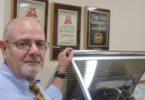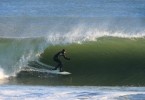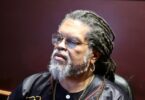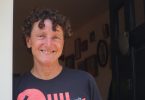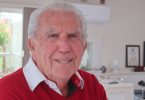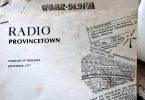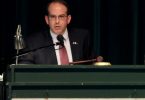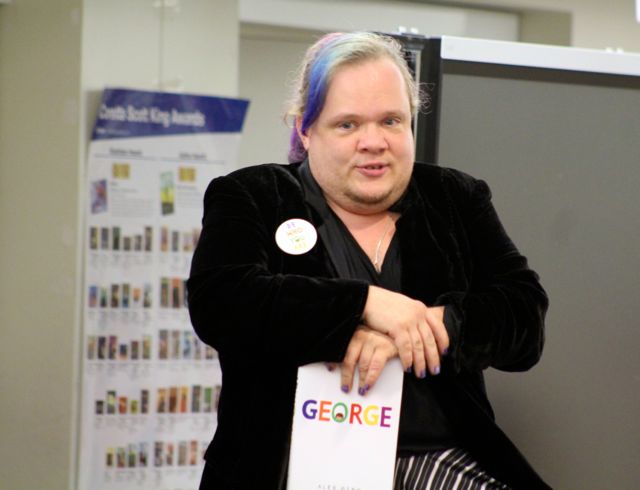
Alex Gino, author of the new children’s book “George,” gives a recent talk at Morse Pond School in Falmouth.
FALMOUTH – Elizabeth Abbott, the library teacher at Morse Pond School, prides herself on having a book for every student at the school for fifth and sixth graders.
But at a recent visit, there were no copies of “George” by Alex Gino on the library shelves. That is because it has been repeatedly borrowed by students.
“George” is a children’s book about a transgender elementary school student written by a transgender author. Some say it is the first of its kind.
“We can’t keep it on the shelves,” Abbott said. “We’ve had more girls read and request it but not by an overwhelming majority. Everyone seems to enjoy it, boys and girls,” Abbott said.
While Abbott said the population of transgender youth in a town the size of Falmouth—population 31,000 on the 2010 census—is undoubtedly small, the importance of having a varied selection of books in the school library cannot be overstated.

Teachers, parents and children turned out to welcome Alex Gino, who has written a book about a fourth grader who is transgender.
“We need diverse books. That’s a book movement. Understanding that students aren’t all coming from the same place. That’s nice for kids to see,” she said.
Abbott, who has taught at the school for 17 years, said she recalls that years ago there was one boy who wanted to come to school wearing a dress. His mother allowed it but his father did not.
“That was a very isolating feeling for a fifth grader. If [‘George’] was on the shelf, he would have said, ‘there is someone like me,’” Abbott said.
The book, “George,” Abbott said, is revolutionary in its way “because it really separates out this idea of identity. Many [young adult] books are tied to romances. This is really about who you are and who you feel you need to be,” she said. “For me it was groundbreaking.”
Abbott said, the book also offered her a better understanding of what some of her students may be feeling.
So far, Abbott said, there has been only one student who spoke against the book, saying it was not realistic. But when that student brought up her point of view at a book club, other students disagreed with her, seemingly defending the book’s main character. “It was interesting,” Abbott said. “They were fighting for what they believed.”









